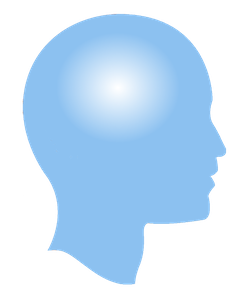It has been claimed that capitalism is human nature. I think this is false. It is true that we can be ruthlessly competitive but we can also be compassionately cooperative. Human nature includes both possibilities. It is not limited to either one exclusively. In other words, we are not born capitalists but neither are we born socialists.
Capitalism is one form of economic system among others. Once upon a time circumstances in the west favoured its formation. Over the years it has led to vast economic disparity, privileging the wealthy with inordinate levels of power. It is also responsible for global issues such as climate change and environmental degradation. As long as it remains the de facto economic system the rich will continue to get richer at the expense of the poor and underprivileged. As I write this Trump’s “One Big Beautiful Bill Act” has just been passed by the US Senate. Among other things this bill would give even more tax breaks to the rich and take away medical coverage from millions of working class Americans. The bill is now before the House for a vote.
Socialism is an alternative to capitalism but Americans have been taught to conflate it with communism and to therefore fear it as threat to democratic freedoms. This mischaracterization of socialism ignores the fact that countries like Sweden, Denmark, Norway, Finland, Australia, Germany, Poland, and others have been operating under democratic socialism for many years. There has been no loss of democratic freedoms in any of these countries. In fact, it could be argued that the people in these countries have more freedom than those in capitalist countries because greater economic equity has resulted in a lower rate of those living in poverty. Also, studies have shown that socialist countries, particularly those with robust welfare systems, often exhibit better social safety nets and public health outcomes, while capitalist countries tend to have higher levels of economic inequality and crime rates.
I maintain that the type of economic system people adopt reflects their assumptions about human nature and the nature of the world. In other words, a person’s worldview or mindset influences the type of economic system they support. I would also say the the opposite is true. The type of economic system a person is living under influences their beliefs about the nature of the world and the place of human beings in it.
A comparison of the values of two basic mindsets shows how one set of values favours capitalism and the other favours socialism.
|
Need |
Independent/Fearful/Cynical Mindset Value |
Interdependent/Hopeful Mindset Value |
|
Physiological |
Access to Physical Requirements – food, water, air, warmth
|
Access to Physical Requirements + Vitality
|
|
Safety |
Strong Protective Boundaries
|
Resiliency
|
|
Security |
Wealth – resource accumulations
|
Sustainability
|
|
Membership |
Tribal Membership – strength in numbers
|
Inclusive Membership
|
|
Significance |
Contribution to group
|
Personal Responsibility
|
|
Meaning |
Status within group
|
Compassionate Interaction
|
|
Purpose |
Personal power
|
Personal Contribution
|
The Independent Mindset is based on the assumption that the world consists of independent separately existing things. Human beings are believed to exist separately from one another and from the things in the world. The values of The Independent Mindset reflect this view. People holding this view will seek to meet their needs according to its values. Generally speaking these are the values of capitalism. In a capitalist society people strive to meet their needs according to the values of The Interdependent Mindset. An obvious example is the value associated with the need for security. It is believed under the capitalist system that the best way to be secure (safe from fluctuations in availability of resources) is to accumulate personal stores of crucial resources or to accumulate wealth which can be used to obtain desired resources in times of scarcity.
The Interdependent Mindset holds a very different view of human nature and the world we live in. It is based, not on an assumption about the nature of existence, but on an observable fact. Over the past one hundred, or so, years it has becoming increasingly obvious, due to advances in the scientific understanding of the nature of existence, that all things exist interdependently. Nothing exist or can exist independently. From this realistic perspective values related to meeting our needs arises that are different from, and in some cases in opposition to, the values of The Independent Mindset. These values are aligned with those of a socialist economic system. The value associated with security in this mindset and in socialism is sustainability. In the pursuit of meeting our need for security under a socialist system sustainability will inform the means we employ.
Capitalism is an unsustainable economic system. To continue it requires continuous growth while ignoring the Earth’s finite supply of resources and limited capacity to meet the needs of the current population, let alone an expanding one. Democratic socialism, on the other hand, is sustainable because it is based on values in line with an interdependent understanding of the way the world works.
A gradual transition from capitalism to democratic socialism can be accomplished through democratic elections if enough people vote for candidates who demonstrate an understanding that we live in an interdependent world. The danger with this hope is that it may not happen in time to prevent an economic and social collapse. On the other hand, it could happen more quickly than might be expected if momentum builds to the point of exponential growth.
Every vote matters.

